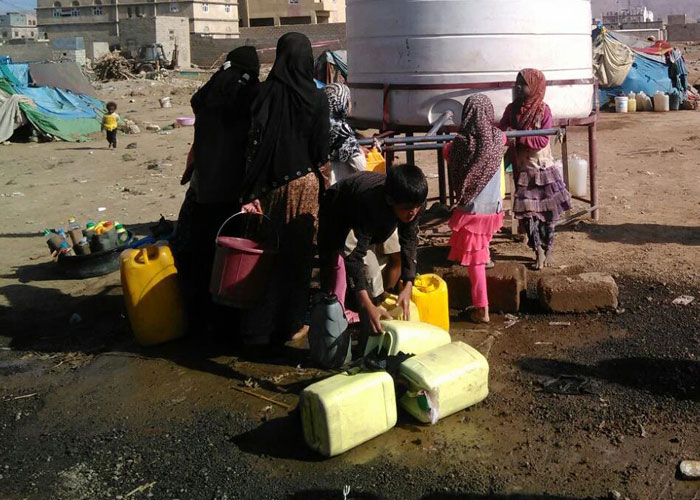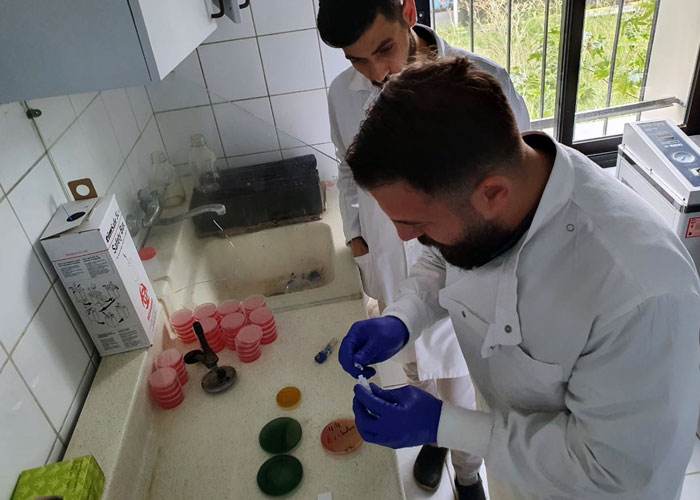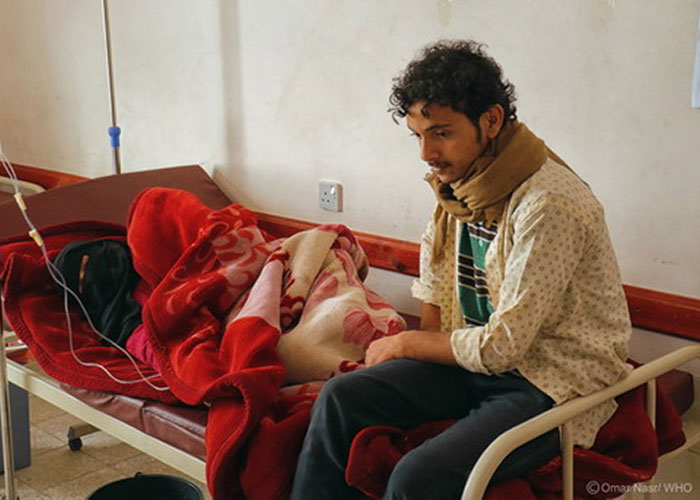Cholera is an acute diarrhoeal infection caused by the bacterium Vibrio cholerae, infecting people most often via contaminated water or food ingestion. Every year, cholera causes an estimated 3 to 5 million cases and 100 000 to 120 000 deaths. The short incubation period (12 hours to 5 days) enhances the potentially explosive pattern of outbreaks.
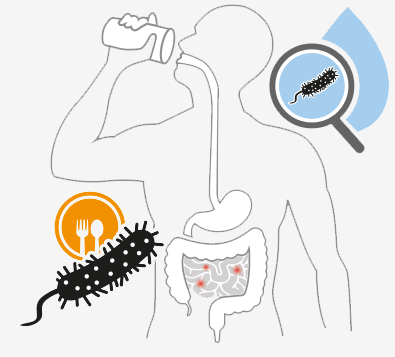



Cholera is an extremely virulent disease and causes acute watery diarrhoea in both children and adults. Although three quarters of all patients do not show any symptoms although the bacteria are present in their faeces for 1–10 days after infection and are shed back into the environment, potentially infecting other people. Cholera can kill, especially those with weakened immune systems within hours if left untreated. Additionally, even asymptomatic patients spread the bacteria via defaecation, which can lead to new infections.
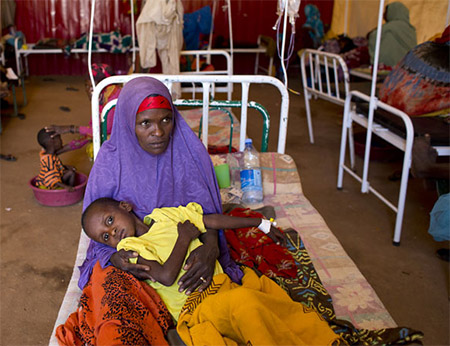 Cholera remains a major public health risk in the Region, which has faced regular large outbreaks in recent years. The major underlying causes of these outbreaks were poor environmental infrastructure, lack of health care services, lack of safe water and sanitation, and increased population movement. Complex emergencies, which affect several countries in the Region, further compound these risk factors. The exact burden of cholera in the Region is difficult to estimate due to under-reporting and weak surveillance systems in some endemic countries. Over the past 10 years, at least 9 out of 22 countries in the Region have reported cholera cases, often in epidemic proportions. Imported cases are often reported in the Region.
Cholera remains a major public health risk in the Region, which has faced regular large outbreaks in recent years. The major underlying causes of these outbreaks were poor environmental infrastructure, lack of health care services, lack of safe water and sanitation, and increased population movement. Complex emergencies, which affect several countries in the Region, further compound these risk factors. The exact burden of cholera in the Region is difficult to estimate due to under-reporting and weak surveillance systems in some endemic countries. Over the past 10 years, at least 9 out of 22 countries in the Region have reported cholera cases, often in epidemic proportions. Imported cases are often reported in the Region.
WHO works closely with ministries of health and health partners to achieve effective prevention and control of cholera. Access to safe water and sanitation, health and hygiene promotion in affected communities, ensuring quality health care and rebuilding strong health systems are among the key areas of intervention. Additionally, immunization of at-risk populations with the oral cholera vaccine is a proven, safe and effective public health intervention.
News
A health worker’s fight against cholera in Yemen
Community-based surveillance improves cholera reporting in Al Hol Camp, Syria
WHO in Lebanon working to stop cholera spread amid conflict
Preempting cholera outbreaks in Lebanon
WHO scales up response following Sudan declaration of cholera outbreak
Cholera cases on the rise in Somalia amid rising displacement of people
Cholera further exacerbates vulnerabilities in Syria
The Czech Republic extends support to the WHO-led cholera response in Syria
WHO Regional Director’s statement on cholera outbreaks
WHO warns of deadly cholera outbreak in Lebanon as cases increase
WHO requires US$ 10.2 million to respond to the rapid cholera outbreak in Lebanon
WHO scales up operations to save lives from cholera and other waterborne diseases








